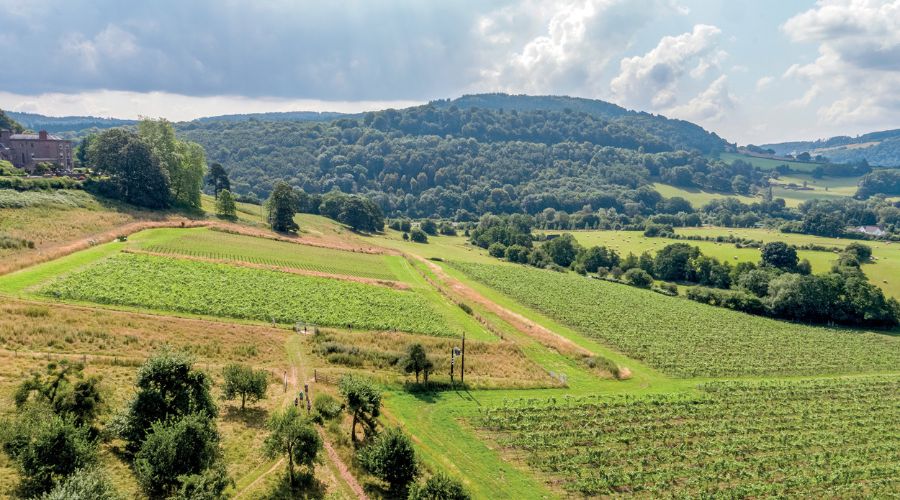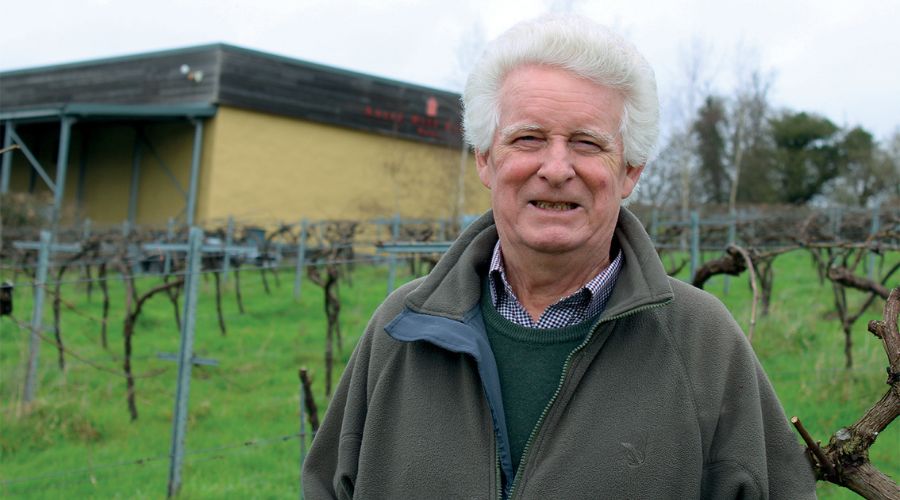Using biostimulants in winemaking
3rd August 2024
There are just seven certified biodynamic vineyards in the UK. One of these is Ancre Hill Estates, near Monmouth in Wales – a boutique vineyard that is currently working with biostimulant specialist Orion FT to improve its vines.

Ancre Hill Estates founder and owner Richard Morris says that since planting the first vines in 2006 and making the decision to become organic and biodynamic in 2010, he has never stopped learning and adapting how the estate grows its vines.
“My vision was not to grow too large that we became dependent on chemicals to produce wine. I wanted to make the most of what the land already had – uncultivated rich soils, south facing, sheltered slopes, and a climate that can grow grapes just as well as many established wine growing regions.”
The estate benefits from sheltered sites protected by the Cambrian Mountains and Brecon Beacons to the west and north. The mudstone and sandstone soils of the estate have not been used for arable farming and his fields were historically grazed by livestock that only enhanced the fertility and nutrient value of the soil.
“We grow higher off the ground with the Geneva Double Curtain (GDC) trellising system. Good canopy management is vital to ensure maximum air flow and sunlight penetration to combat potential mildew diseases. This higher system is also better for combatting frosts. Our vines yield high quality fruit with intense flavours, and, with just 22 acres, it is about quality not quantity.”
Richard and his South African head winemaker, Jean du Plessis, have worked hard to understand the terroir and climate that the vines have to live in. Warmer winters threaten the vines’ ability to rest in a dormant state for long enough, and late frosts can also be of concern. However, the wet conditions over winter and early spring are potentially a greater threat to the vineyard.
Preventative method
Hearing a presentation by biostimulant specialist and agronomist Kate Williams from Orion FT, Richard was impressed by the approach that described biostimulants as a preventative method, rather than a cure.
“It was so refreshing to hear an approach that wasn’t using words like ‘control’ or ‘management’ and was instead plant-focused, advocating a methodology based on improving the plant’s natural defences to cope with attack, disease or climate extremes.”
He immediately began his own investigations, contacting Demeter to establish whether biostimulants could be used under its guidelines. Following confirmation that the products made by Orion FT did not contravene any of Demeter’s rules and following approval, he and Jean began a trial with the oldest vines on the estate.
Hidden potential
“The idea was to see if we could unlock the hidden potential of the vines. We trialled three biostimulants in 2023, starting on 7th April and making 14 applications through the growing season, with the last on 13th September.”
The biostimulants used included Fossil, a dual action, silicon-phosphite formulation designed to enhance and stimulate natural plant defences; Trident, a copper and zinc formulation to boost immune pathways; and Sirius, a biostimulant with 21% bio-available silicon, designed to enhance natural plant resilience.

“Thankfully it was a good growing year, so the vines were not subjected to too much stress. However, we could see the difference in plant health and vitality. The vines were visually healthier, and it was evident that the addition of silicon was making a difference, but how much difference is impossible to say.”
However, biostimulants are only one element when it comes to the mixes that the estate is using to improve its vines and the quality of its crop. “We make our own tisanes as foliar sprays both for nutritional and disease prevention purposes, much of which is grown here on the estate. Willow, nettle, yarrow, dandelion, comfrey, valerian, and chamomile all have a part to play in our spray programmes.
“We are not expecting any one measure to miraculously overcome all the challenges we face, which is why we use a wide variety of natural treatments that are all designed to promote plant health.”
The estate also uses its own vinegar solution made with cider apples grown on its land, which lowers the pH and activates sulphur to help prevent disease and pests.
“This approach has also seen Richard reach beyond the estate to source local organic raw, unpasteurised milk to combat powdery mildew. It is applied as a foliar spray after a couple of days settling to enable the bacteria to build up, the idea being for the bacterial population to out-compete any fungal spores that may be present in the vines. He recommends that milk is only used at temperatures of 25ºC and above.
Natural biodiversity
“We don’t worry too much about aphids because we have a thriving population of ladybirds. I frequently find dozens in the bathroom of the house and, most years, we do counts to assess the population of beneficials and the potential threat of pests, but because we haven’t tampered too much with the biodiversity of the estate, it manages itself.”
The result is a grape that is full of natural flavour and, in his words, “not dulled” by the interference of using too much copper or chemicals.
“Over the past dozen or so years we have moved away from using copper altogether in some seasons which some may find hard to believe, but we have faith in our methods, and we can see the results.”
Read more vine news.
